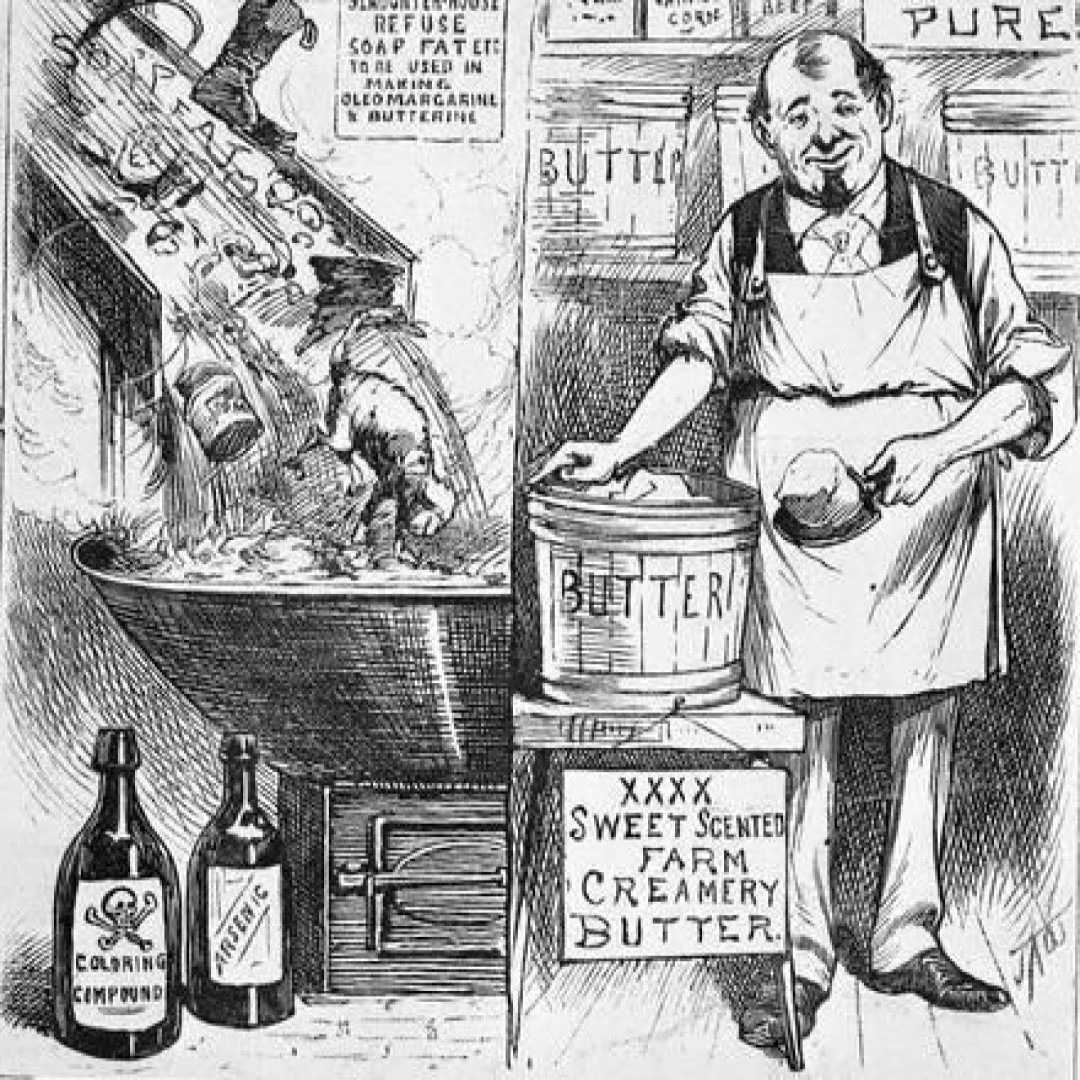
U.S. Congress passed The Margarine Act of 1886
On Aug. 2. 1886, the U.S. Congress passed the Oleomargarine Act which among other things, directed the Secretary of the Treasury to appoint an analytical chemist and a microscopist, both of whom were subsequently authorized to examine samples of butter for adulteration with oleomargarine for appropriate.
In 1877, the state legislatures of New York and Maryland passed laws regulating margarine manufacturing and sale. By the mid-1880s, 17 states had regulated the packaging and labeling of margarine, and 7 states—Maine, Michigan, Minnesota, New York, Ohio, Pennsylvania, and Wisconsin—prohibited its manufacture and sale.
In 1902, Congress passed a tax on margarine five times higher than the 1886 act, and two years later the Supreme Court upheld the law’s constitutionality. Congress repealed the margarine tax in 1950. Wisconsin became the last state to repeal its anti-margarine regulations in 1967.
Tags:
Source: Bureau of Alcohol, Tobacco, Firearms
Credit:
